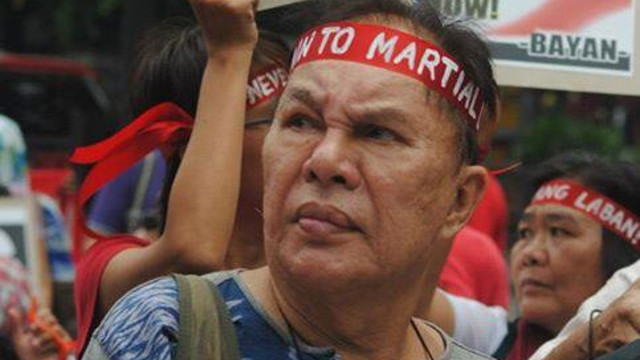SUMMARY
This is AI generated summarization, which may have errors. For context, always refer to the full article.

MANILA, Philippines (UPDATED) — Stage and screen actor-director Behn Cervantes died Thursday, August 15. He was 74.
Sources have confirmed to Rappler his death at about 10:00 Thursday morning at the Asian Hospital in Alabang, Muntinlupa, where he had been confined due to complications from pneumonia.
Cervantes was due to turn 75 on August 26.
His dying wish for a belated announcement had complicated the disclosure of his passing. According to a close family friend, the stage and screen actor-director had expressed his wish that his death be announced a week later.
Cervantes’ associates in theater and the academe were already commenting on social media about his passing, including actor-director Bart Guingona and UP professor and activist Judy Taguiwalo, whose Facebook post in July about Cervantes’ hospitalization was the initial source of a Rappler article about his illness.
Sense of humor, flair for drama
On learning about his death, not a few of Cervantes’ colleagues quipped about his sense of humor and drama, qualities that have endeared him to the artistic community.
Apart from his prolific work in theater — ranging from the repertoire of Broadway to the protest theater movement of the 1970s and ‘80s — Cervantes was also critically acclaimed in Philippine cinema.
He takes pride in his 1976 film, “Sakada,” which counts among the great social-realist and allegorical films at the time.
Cervantes’ other film credits, as listed in imdb.com, include “Masikip, Masakit, Mahapdi” and “Bawal na Pag-ibig.”
“Sakada” also featured a diverse cast representing the vital chapters of Philippine cinema — including Hilda Koronel, Bembol Roco, Alicia Alonzo, Robert Arevalo, Rosa Rosal, Gloria Romero, and Pancho Magalona (whose son, Francis, would fashion his own distinct milieu in our country’s pop culture).
Together with the late film director Lino Brocka, Cervantes had been at the forefront of the anti-Marcos protest movement during the 14-year dictatorship.
His wit and flair for drama still showed even in this theater, which, in hindsight, the actor-director jokingly qualified as the “ibagsak” genre.
Yet alongside his political commitment were his encyclopedic knowledge of both the loftier arts and popular culture (topics he would write about for the “Philippine Daily Inquirer”) and his comprehensive appreciation of the social classes.
These qualities have made Cervantes a widely admired icon in the community of art and culture and beyond. – Rappler.com
Add a comment
How does this make you feel?





There are no comments yet. Add your comment to start the conversation.